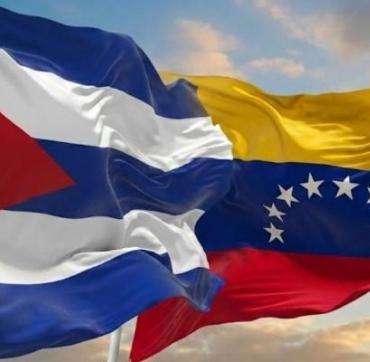FIVB unveils new Executive Committee
especiales

Following the successful conclusion of the 39th World Congress, the newly formed International Volleyball Federation (FIVB) Executive Board convened to elect its members and set the stage for the next phase of the global movement, with Fabio Azevedo serving as the newly elected President.
Azevedo chaired the meeting, with key decisions including the re-election of Yuji Saeki and the appointment of FIVB Secretary General Hugh McCutcheon as a member of the Board. The FIVB also confirmed the composition of the Executive Committee for the 2024-2028 Olympic cycle, which will be as follows:
Mr. Fabio Azevedo – President
Lic. Cristóbal Marte Hoffiz – 1st Executive Vice-President
Mr. Roko Sikirić – 2nd Executive Vice-President
Mr. Roberto Wilfrido Escobar González – Treasurer & Executive Vice-President
Mrs. Bouchra Hajij – Executive Vice-President
Mr. Marco Tullio Teixeira – Executive Vice-President
Mr. Ramon Suzara – Executive Vice-President
Mr. Mark Eckert – Executive Vice-President
Mr. Dula Mester – Executive Vice-President
Mr. Hugh Graham – Executive Vice-President
Mr. Daniel Molaodi – Executive Vice-President
Mrs. Mireya Luis Hernández – Executive Vice-President
Mrs. Hila Asanuma – Executive Vice-President
Addressing the Board, Azevedo said, "It is fantastic to be here with all of you today after an incredible 39th World Congress. The new Board is made up of over 50% new members, so this is a very exciting time for our sport as we serve the global volleyball movement and move volleyball into phase three."
"Through the pillars of the Strategic Vision 2024-2032 - Professionalism, Integration, Empowerment and Mass Participation - and a united approach, I am confident that we will achieve great progress for our sport in the coming years," he added, as quoted on the official FIVB website.
The composition of three judicial bodies - the FIVB Appeals Panel, the Disciplinary and the FIVB Tribunal - for the period 2024-2028 was also approved, as was the appointment of Olivier Zysset as FIVB Controller.
The FIVB also discussed the composition of all Councils and Commissions for 2024-2028, which will be confirmed at a later date. These will be the pillars of this Olympic cycle, which started a few months ago and will end with the celebration of the 2028 Olympic Games in Los Angeles.
The hierarchical structure of the federation consists of the President, the Executive Committee, the Board of Directors and ten Technical Commissions.
Azevedo will lead world volleyball for the next eight years, and was unanimously elected at the 39th FIVB World Congress in Porto and succeeds Ary S. Graça, who will now serve as Honorary President. The FIVB's objectives will focus on further developing the Beach Pro Tour (BPT) and the Volleyball Nations League (VNL).
There is currently a global fan base of 800 million followers and the key to the growth of volleyball is to expand this following. The creation of the FIVB in 1947 gave the sport a huge boost, with fourteen national federations joining at the time. From there it grew exponentially, eventually becoming one of the largest sporting organisations in the world with 222 affiliated bodies.
While the World Championships remain the main attraction of the sport, over the years the FIVB has added events such as the World League and Grand Prix, now replaced by the current Volleyball Nations League (VNL), the World Cup and the Club World Championships, as well as becoming an Olympic sport.
Volleyball made its Olympic debut at the 1964 Games in Tokyo. Beach Volleyball was added to the Olympic programme at the Atlanta Games in 1996, a decision that helped take the sport's global reach and popularity to a new level. The FIVB Beach Volleyball World Championships followed in 1997, and today the global volleyball movement continues to contribute to the growth and expansion of the sport.














Add new comment